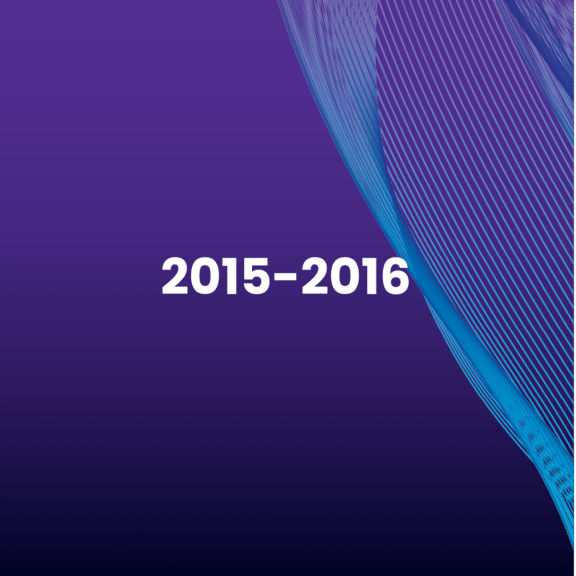- Summary
- Investor Relations
- Advisors
- Shareholdings
- AGM
- Corporate Governance
- Environmental, Social & Governance
- RNS
- Presentations & Webinars
- Research
- Constitutional Documents
Summary
Tristel plc is incorporated in England and Wales and is subject to the UK City Code on Takeovers and Mergers. Its shares are listed on the Alternative Investment Market (AIM); there are no other exchanges or trading platforms on which Tristel plc has applied or agreed to have any of its securities admitted or traded. There are no restrictions on the transfer of Tristel plc’s AIM securities. The Company’s Ticker Symbol is TSTL.
The number of shares in issue on 17th December 2025 was 47,765,543 (Ord 1p).
For details of what the Company does, please refer to the “About” section of this website.
The information on this investor website is being disclosed for the purpose of AIM Rule 26 and was last updated on 18th December 2025.
Investor Relations
The Chief Executive and Chief Financial Officer are the key shareholder liaison contacts alongside the company’s public relations advisors.
The Board actively engages with both institutional and private shareholders on at least four occasions each year, each in a forum that allows Management and the Board to hear investors’ views and answer their questions face to face. The Company’s NOMAD and public relations advisor provide written investor feedback after all investor presentations and meetings which are shared with the Board. Via communication with the Company’s NOMAD and analyst, together with Regulatory News Service announcements and the Company’s Annual Report, the Board gauges investor sentiment, sets expectations and communicates the Company’s intentions. The Board sees all write-ups on the Company by the financial press, monitors popular online bulletin boards and has a series of online facilities in place that provide a conduit between the Company and its shareholders.
The Board feels that the Company has achieved a very high level of shareholder engagement and continues to seek ways to enhance this.
If you would like to contact the company’s Management or have comments or questions, please email us direct or alternatively, register at [email protected] to receive updates, RNS and notifications of presentations and events.
The Company’s financial calendar is:
Event Date Year End 30 June Half Year End 31 December Preliminary Results* October Interim Results* February AGM* December *Months based on previous announcements of this kind.
Anna Wasyl
Chief Financial OfficerAdvisors
-
Financial PR
Walbrook PR Limited 75 King William Street, London, EC4N 7BE Tel: 020 7933 8780 Email: [email protected] -
Registrar
Computershare Investor Services plc PO Box 859, The Pavilions, Bridgwater Road, Bristol BS99 7NH Tel: 0870 889 3105 http://www.uk.computershare.com -
Nominated Advisor & Broker
Cavendish, 1 Bartholomew Close, London EC1A 7BL Tel: 020 7220 0500 https://www.cavendish.com/ -
Auditors
Grant Thornton UK LLP Chartered Accountants - Registered Auditors 199 Avebury Blvd Milton Keynes
MK9 1AU Tel: 01908 660666 https://www.grantthornton.co.uk/ -
Solicitors
Browne Jacobson, 15th Floor, 6 Bevis Marks, London, EC3A 7BA Tel: +44 (0)370 270 6000 https://www.brownejacobson.com -
Solicitors
Greene & Greene, 80 Guildhall Street, Bury St Edmunds, Suffolk IP33 1QB Tel: 01284 762211 https://greene-greene.com -
Patent Attorneys
Dummett Copp, 25 The Square, Martlesham Heath, Ipswich, Suffolk IP5 3SL Tel: 01473 660 600 https://www.dummett.com -
Remuneration consultants
FIT, 5 Fitzhardinge Street, London W1H 6ED Tel: 020 7034 1111 Email: [email protected]
-
Shareholdings
Director Shareholdings
The interests of the directors in the shares of the Company at 12 December 2025 were:
Executive Ordinary 1p shares % of issued Matt Sassone 3,500 0.00% Non-Executive Tom Jenkins 13,400 0.02% Isabel Napper 2,000 0.00% Caroline Stephens 1,971 0.00% The total number of shares not held in public hands at 30 June 2025 was 17,371, constituting 0.03% of the company’s share capital.
Substantial Shareholdings
Except for the directors’ interests noted above, the directors are aware of the following who were interested in 3% or more of the Company’s equity at 31 October 2025:
Name of Investor Registered Holding % of issued Liontrust Asset Management 4,745,580 9.93% Charles Stanley 3,925,707 8.23% Unicorn Asset Management 2,505,377 5.25% Montanaro Asset Management 2,373,679 4.98% Investec Wealth & Investment 2,345,197 4.92% BGF 2,195,271 4.61% Interactive Investor (EO) 2,111,222 4.43% Hargreaves Lansdown, stockbrokers (EO) 2,039,134 4.28% Rathbones 1,631,302 3.42% AGM
2025
2024
2023
2022
2021
2020
2019
2018
2017
2016
2015
Corporate Governance
Tristel Plc
Chairman’s Corporate Governance Report
This Corporate Governance Report is in compliance with the Quoted Companies Alliance (“QCA”) Corporate Governance Code.
As Chair of the Board of Directors, corporate governance is my responsibility. By following the QCA code, my Board colleagues and I seek to ensure that the Company operates efficiently and effectively and communicates well to promote confidence and trust in the Company’s Board and Management. The Board aims to balance the interests and expectations of the Company’s many shareholders and stakeholders by observing a transparent set of rules, practices and processes. I believe that by adhering to this clear set of guidelines which clarify authority and responsibility, requiring constant measurement and review, the Company is best placed to manage risk and achieve a high level of performance, both of which are pre-requisites to the Company’s long-term success.
Corporate Governance Review
The London Stock Exchange’s AIM Rule 26 requires all AIM quoted companies to give details of the corporate governance code that they have decided to apply, to explain how they comply with their chosen code, and, if they depart from the chosen code, to explain where and why. In the Board’s view, there are two obvious choices of code: the FRC’S UK Corporate Governance Code and the QCA’s Corporate Governance Code (the “QCA Code”). The latter has been drafted with SMEs in mind and we have chosen to apply it.
Each year the Board carries out a review of the requirements of the QCA Code and AIM Rule 26, with respect to both its governance arrangements and practices, and its reporting. The key changes that have resulted from this review during the year ended 30 June 2024, are:
- An update to this Corporate Governance Report
- Completion of a strategic review, in conjunction with the Company’s North American product launch, resulting in re-defined strategic objectives and financial goals
- Completion of an external Board effectiveness review, and implementation of the resulting proposals
- Setting of personal objectives for Executive Management
- Further enhancement to Board reporting enabling improved insight into business activities
- A review and update to the Executive Management succession plan
- Formulation of an ESG strategy and setting of targets
Corporate Governance Code
The QCA Code is based on the principle that companies need to deliver growth in long-term shareholder value. This requires an efficient, effective, and dynamic management framework and should be accompanied by good communication which helps to promote confidence and trust. The QCA Code takes key elements of good governance and applies them in a manner which is workable for the different needs of growing companies. It is constructed around ten broad principles and a set of disclosures. Companies are asked to provide an explanation of how they are meeting the principles through the prescribed disclosures. Where a company departs from these principles the Board is asked to provide a well-reasoned explanation for doing so. The following section of this Corporate Governance Report seeks to provide this.
Principle 1 – Establish a strategy and business model which creates long-term value for shareholders
The Board reviews and re-sets the Company’s strategic goals annually. In July 2023 the primary goals were re-set, as:
Corporate
- Maximise the Company’s value to all stakeholders
Medical device decontamination (Tristel brand)
- Through technological innovation maintain our position as the gold standard manual process for High Level Decontamination of medical devices.
Healthcare surface disinfection (Cache brand)
- To become the global market leader in sporicidal surface disinfection
Secondary objectives and goals form part of the strategic plan and make an essential contribution to how the Company will deliver medium to long-term growth.
ESG
Tristel plc is a parent company which, based on group-level reporting and being an unquoted company, meets the thresholds for SECR requirements for disclosing the combined energy use and emissions of all subsidiaries. None of the subsidiaries individually meet the thresholds of reporting if each were assessed on their own, so we are not required to disclose our emissions, however, we have chosen to provide our UK-based energy emissions within the SECR table. Tristel plc, as an unquoted company, will only report on UK-based energy use and associated emissions. We have not included the associated energy use and emissions from our overseas subsidiaries.
We are engaging in SECR disclosures to report energy use and carbon emissions in alignment with the Companies (Director’s Report) and Limited Liability Partnerships (Energy and Carbon Report) Regulations 2018.
The Company has a clear strategic plan set by the Board, including financial performance targets, an approach to risk, and a vision of the values necessary and appropriate to achieve the plan. These are described with the Chief Executive’s Report via internal reporting and interaction between the Board, Management and staff, there is company-wide understanding of how shareholder value will be derived from these principles.
The key risks to the company delivering upon its strategic objectives are:
- Competing technologies
- Divergence by regulators away from chemical disinfectant products
- A shift in market acceptance of manual decontamination systems
The risks are addressed through product development, enabling the benefits of alternative systems to be incorporated into our offering whilst maintaining its existing unique and very high performance qualities.
The business strategy, financial targets and key risks are clearly stated within our Annual Report to ensure that Shareholders can see how the Board intends to deliver long term shareholder value and security, whilst protecting it from unnecessary risk.
Principle 2 – Seek to understand and meet shareholder needs and expectations
The Chief Executive and Chief Financial Officer are the key shareholder liaison contacts alongside the company’s public relations advisors.
The Board actively engages with both institutional and private shareholders on at least four occasions each year, each in a forum which allows it to hear investors’ views and answer their questions face to face. The Company’s NOMAD and public relations advisors provide written investor feedback after all investor presentations and meetings, which are shared with the Board. Via communication with the Company’s NOMAD and analyst, together with Regulatory News Service announcements and the Company’s Annual Report, the Board gauges investor sentiment, sets expectations and communicates the Company’s intentions
The Board sees all write ups on the Company by the financial press, monitors popular online bulletin boards and has a series of online facilities in place that provide a conduit between the Company and its shareholders. AGM voting recommendations and trends are reviewed by the Board and actions taken when there is evidence that shareholders expectations are not being met.
The Board feels that it has achieved a high level of shareholder engagement and continually seeks ways to further enhance this.
Principle 3 – Take into account wider stakeholder and social responsibilities and their implications for long-term success
Management’s close day to day connection with employees combined with regular engagement surveys, staff meetings, education sessions and social events ensure good relations with and between employees. These activities allow employees to share their views on how the Company can ensure greatest chance of success for its products, processes and outcomes, as well providing a positive work environment. The Board’s assessment is that the Company’s culture is energetic, candid and considerate, which is reflected in the achievement of its strategic goals.
An appropriate and positive relationship with suppliers, advisors and customers is a pre-requisite of the successful operation of the Company and exists in all areas of the business. The Company seeks to find innovative solutions to issues presented by customers which not only strengthens their good relations but provides immediate feedback allowing the Company to continually re-evaluate its strategic positioning and product offering. Product design and development, which has been vital to the Company’s success, is at the heart of the business operation and is driven by the close understanding between Management and end users of the Company’s products.
The management team works closely with regulators, key opinion leaders and authors of clinical guidelines in all countries, seeking counsel and working in cohort when appropriate. Effective connections and relationships are key to the success of the business and via these networks the Company has built strong barriers to competition, consisting of the inclusion in guidelines, studies, published papers, and medical device manufacturer care cards. These relationships and their outcomes, combined with the Company’s proprietary formulation of chlorine dioxide and extensive patent protection, give the Board confidence that long term success can be achieved by the Company in accordance with its strategic plan.
Post market surveillance and effective complaints and feedback handling are a mandatory element of the Company’s quality accreditation and enable an invaluable feedback loop into future product development.
ESG
Full details of the Company’s ESG strategy, goals and activities can be found in the ESG report. In addition to the items outlined within the ESG report, the Company will continue its community and social activities, which currently include:
- Support of local and small businesses
- Sponsorship of local amateur and school sports teams
- Support of charities connected to the company’s staff and its local community
- Staff fundraising events
- Walking and sports events for staff, friends and families
The Board is involved in setting the Company’s ESG strategy, has oversight on activities and receives regular reporting on KPIs and the achievement of goals. ESG is discussed in depth as part of the Board’s annual Strategy Day, during which it was agreed to:
- Adopt the ESG strategy, goals and KPIs above
- Consider which ESG accreditations and guidelines that it may seek to adopt, to further enhance the Company’s ESG profile.
- Enhance the Annual report and Company website to provide clear updates to readers on the Company’s ESG activities.
Principle 4 – Embed effective risk management, considering both opportunities and threats, throughout the organisation
Business opportunities, wins, losses and threats are shared by the Management team with the Board. Risks and their mitigating factors are documented, with high-risk situations immediately acted upon. Health & safety risk assessments are a high priority given the nature of the business as a chemical manufacturer and are completed on a continual basis. Operational risks and uncertainties are discussed daily within the business in departmental meetings. A Business Continuity and Disaster Recovery plan has been updated in the year with scenario planning events taking place twice a year. Financial risks are considered by the Board at each Board meeting. The Board is provided with global sales and cash information daily, allowing it to quickly respond in fast-moving situations.
The Board ensures the risk management and related control systems are effective through internal review and assessment, which is part of its continuous improvement strategy.
Principle 5 – Maintain the Board as a well-functioning, balanced team led by the Chair
In addition to daily access to sales numbers and the cash position of the Company, the Board receives detailed information and reporting from every geographical and functional part of the business, direct from the responsible individuals. The information is high quality and comprehensive, ensuring that the Board is well informed and has the tools to facilitate proper assessment of matters which require its insight and decision making.
The Board believes that there is an appropriate balance between Executive and Non-Executive Directors on the Board. Isabel Napper is the Senior Independent Non-Executive Director, Bruno Holthof who is the Non-Executive Chair of the Board is also independent. Tom Jenkins and Caroline Stephens are Independent Non-Executive Directors, Tom becoming independent in the final quarter of the prior financial year. David Orr is not considered to be independent by virtue of his directorship and shareholding in Manor packaging, a supplier of cardboard to the Company. David will step down from the Board at the December 2024 AGM having reached the end of his 9-year tenure.
Since the prior year, the Board has complied with the QCA Code’s requirement that at least half of the Board should be independent Non-Executive Directors. It is believed that the mix of non-independent directors bring great specialist, analytical and entrepreneurial attributes to the Board, adding viewpoints and competencies that further enrich it.
The Executive team during the financial year consisted of Tristel’s Chief Executive Paul Swinney and Chief Financial Officer Elizabeth Dixon, who are married, and Bart Leemans. Bart is an Executive Director, alongside his role managing the Group’s French and Belgian operations. Matt Sassone has since taken on the role of Chief Executive following Paul Swinney’s retirement in September 2024. At the same time, Bart Leemans stepped down from the Board to focus on his European role.
All Directors are encouraged to foster an attitude of independence of character and judgement. The relevant experience, skills, and personal qualities that each Director brings to the Board are detailed within the Directors Biographies, published within the Remuneration Report. Each Director keeps their skillset up to date by reading relevant publications and attending external training and personal development courses and workshops.
Each Non-Executive Director is expected to give at least 16 days per annum to the Company’s business.
Principle 6 – Ensure that the Directors collectively have the appropriate skills, capabilities and experience
The Board consists of individuals with backgrounds and experience in publicly and privately-owned healthcare, commerce, finance, legal and manufacturing organisations. Collectively, the Board’s members have a wide range of experience, personal qualities, and capabilities.
The Board contains three Executive Directors, two male and one female, and of five Non-Executive Directors, two are female and three male. In all new appointments the Board aims to appoint candidates who bring new and diverse attributes to its complexion.
In accordance with the QCA Code Non-Executive Directors are only eligible to serve for up to 9 years. At each Annual General Meeting, at the discretion of the Nominations Committee, all directors are put forward for re-election.
Principle 7 – Evaluate Board performance based on clear and relevant objectives, seeking continuous improvement
The performance and effectiveness of the Board, its committees and individual Directors is reviewed by the Chair and the Board on an ongoing basis. Training is available should a Director request it or if the Chair feels it is necessary.
The performance of the Board was measured during the year in conjunction with an external consultancy; alongside the Chair’s own assessment, in part via reference to the Company’s achievement of its strategic goals. The performance of the Chair is assessed annually by the Senior Independent Non-Executive Director. The performance of the CEO and CFO is assessed annually by the Chair. The performance of other Executive Directors is assessed annually by the CEO. And the performance of the NEDs is assessed annually by the Chair.
Actions that have resulted from the Board review include:
- In addition to regular reviews, specific in-depth appraisals to be included in the FY24 Board agenda on matters of current significance such as risks, overseas expansion plans and ESG actions. Thee reviews have facilitated an improved understanding by the Board of key subject matters pertaining to the Group’s performance and expansion plans.
- Specific succession planning actions. The Board has successfully concluded the recruitment and induction of its new CEO Matt Sassone.
- Meetings to be arranged between the Chair and investors during FY24. Meetings took place between the Chair and major shareholders, enabling shareholder views to be understood and integrated into the CEO succession process.
- More Board interaction and communication to be scheduled in-between Board meetings NED meetings and Executive updates are now regularly carried out ensuring that the Board is aware of current activities.
The Board has in place a short-term plan to be instigated in the event of the loss or incapacity of the key roles of Chief Executive or Chief Financial Officer. The Board continually assesses the candidacy of staff with respect to succession planning, both within the Company and for future Executive Management vacancies. Senior Managers are invited to attend Board meetings to both observe, present, and discuss topics in their area of responsibility. A talent development and succession plan has been formulated to ensure that the loss of any of the Executive Directors will not negatively impact the business.
Principle 8 – Promote a corporate culture that is based on ethical values and behaviour
The Board promotes a corporate culture that is based on sound ethical values and behaviour through their own actions and words and ensures that these are apparent and understood in every part of the business.
They are embodied in three words which describe the core values of the Company:
- No-nonsense
- Considerate
- Energetic
These values are applied consistently to employee personal development and training programs and form a central part of the Company’s day to day operation.
By adhering to these values, the Board believes that the Company will maintain a healthy corporate culture, focusing upon what is important, whilst taking a balanced approach to achieving its goals.
Infection prevention is a vital yet complex area of healthcare, and healthcare providers can be reluctant to change and put their trust in new products. The Board feels that if an honest and straightforward approach is taken, whilst supporting customers through the process of adopting new products, the Company can best achieve its goals.
The relatively flat structure of the Company means that the Board can assess the state of Company’s culture easily, which it currently considers to be energetic, candid and considerate, despite the uncertainties affecting the world and felt by us all.
Principle 9 – Maintain governance structures and processes that are fit for purpose and support good decision-making by the Board
Given that one of the Company’s core values is “no-nonsense”, the Board seeks to strike a balance between maintaining adequate governance without imposing structures that slow or weaken decision making and progress. The Company’s governance structures are fluid and have by necessity adapted over time, hand in hand with the changes to the business.
The Board’s members are well informed, have access to all parts of the business and are appropriately equipped through their own skills, experience, and personality to make good, and where appropriate fast, business decisions.
At each Board meeting the Key Performance Indicators (KPIs) considered most relevant to the business are presented and discussed. Such KPIs are continually developed to ensure that the Board is kept adequately informed and able to take the appropriate actions. The KPI reporting include a number of measures, focussing upon operational performance, financial performance, Quality Management System adherence and ESG targets. Periodically, normally annually, a corporate risk register is presented to the Board and mitigating actions agreed.
Principle 10 – Communicate how the Company is governed and is performing by maintaining dialogue with Shareholders and other relevant stakeholders
This Corporate Governance Report is included within the Company’s annual report and the Corporate Governance section of the Tristel website. It is reviewed and updated regularly. In addition, the Board regularly enters dialogue with shareholders who have an interest in matters of governance, diversity and ethics in order that shareholders views can be properly voiced and brought to bear within the business.
Board of Directors
The Company is controlled by the Board of Directors, which at the year end comprised three Executives, one of whom is the Chief Executive Officer, and five NEDs. The role of the Chief Executive Officer and Chair are separate. The Executive Directors are full time employees of the Company; the NEDs are part time employees who are required to give at least 16 days per annum to their role. At the date of this report the following changes have taken place to the Board’s composition:
Paul Swinney CEO and founder has retired
Matt Sassone has been appointed as CEO
Bart Leemans has stepped down as Executive Director
In addition, the Nomination’s Committee will not be recommending David Orr for re-election at the December 2024 AGM on account of his nine year tenure on the Board.
All Directors can take independent advice to assist them in their duties if necessary.
The Board is responsible to shareholders for the proper management of the Company and meets formally at least six times a year to set the overall direction and strategy of the Company, to review operating and financial performance and to consider and advise on senior management appointments. The Board also monitors and approves financial policy and budgets, including capital expenditure. All key decisions are subject to Board approval.
The Company Secretary is responsible for ensuring that Board procedures are followed and that all applicable rules and regulations are complied with. The Company Secretary, Heidi Allard, is supported and guided in her role by the Company’s legal advisors.
Board and committee attendance
The Board met seven times during the 2023-24 financial year and its committees met a further six times in accordance with their terms of reference. The attendance of the Directors at these meetings is detailed below.
On the occasions when a Director is unable to attend a meeting, any comments he or she has arising from the information pack circulated prior to the meeting are provided to the Chair.
2023-24 Eligible to attend Attended Bruno Holthof 11 10 Paul Swinney 9 9 Elizabeth Dixon 9 9 Bart Leemans 7 7 David Orr 11 10 Tom Jenkins 13 12 Isabel Napper 13 12 Caroline Stephens 13 13 Committees of the Board
Remuneration Committee
The Remuneration Committee operates under terms of reference which are reviewed annually, meeting at least once per year, and comprises all Independent Non-Executive Directors chaired by Isabel Napper, Senior Independent Non-Executive Director (SINED).
It reviews, inter alia, the performance of the Executive Directors and sets the scale and structure of their remuneration and basis of their service agreements, having due regard to the interests of the shareholders. The Remuneration Committee also determines the allocation of share options to Executive Directors. No Director has a service agreement exceeding one year. One of the policies of the Remuneration Committee is that no individual participates on discussions or decisions concerning his/her own remuneration. The Directors’ Remuneration Report is set out in the Annual Report where the work carried out during the past year is detailed.
Audit Committee
The Audit Committee operates under terms of reference which are reviewed annually and comprises all Independent Non-Executive Directors except the Chair of the Board, in line with QCA guidelines.
The Audit Committee is chaired by Caroline Stephens, supported by Tom Jenkins, both Independent Non-Executive Directors (INEDs). Tom is a qualified Accountant and as such has the relevant knowledge and experience required to facilitate the proper functioning of the Committee. The Committee meets twice a year and, amongst other duties, overviews the monitoring of the Company’s risk profile, internal financial controls, accounting policies and financial reporting, and provides a forum through which the external auditors report. It meets at least once a year with the external auditors.
The Company does not comply with the QCA’s requirement to publish a separate Audit Committee Report as it believes that the information provided within this Corporate Governance Report gives shareholders adequate information on the committee’s activities.
During the 2023-24 year the Audit Committee met on two occasions to:
- Discuss findings and hear recommendations arising from the annual audit
- Discuss with the Company’s external auditors matters such as compliance with accounting standards
- Monitor the external auditor’s compliance with relevant ethical and professional guidance on the rotation of audit partners, the level of fees paid by the Company and other related requirements
- Consider the performance and value for money of the Company’s external auditors
- Approve the appointment of the Company’s external auditors, including their terms of engagement and fees.
The Audit Committee reported formally to the Board on proceedings after each meeting.
Nominations Committee
The Nominations Committee operates under terms of reference which are reviewed annually, comprises all Non-Executive Directors and the CEO and is chaired by Bruno Holthof, Non Executive Chair of the Board.
The Nominations Committee considers the performance and effectiveness of the Board and its Directors; whether Directors retiring by rotation should be put forward for re-election at the Annual General Meeting; to consider succession planning for Directors and other senior executives; and to identify and nominate for the approval of the Board candidates to fill Board vacancies as and when they arise.
During the year the significant actions arising from the Committee were:
- Implementation of a Board review and implementation of resulting actions
- Appointment of a new CEO
External consultants Nurole were appointed during the year to complete a review of the effectiveness of the Board and that of the individual Directors, in relation to the following categories:
- Strategy and business
- Risk management and ESG
- Composition and Diversity
- Board dynamics and process
All directors were provided with qualitative feedback to further enhance their contribution to Board functioning.
The performance of the Board and its individual Directors is also viewed in the context of the Company’s achievement of its strategic goals. During the 2023-24 year these were:
- To meet the Group’s profit target.
- To increase sales by between 10% and 15% per annum.
- To increase the Company’s value to shareholders.
All three objectives were achieved during the year.
Directors are subject to election by shareholders at the first opportunity after their appointment. In addition, all Board members retire at each Annual General Meeting, and at their own request alongside the recommendation of the Nominations Committee, are put forward for re-election.
Relations with shareholders
The Board recognises the importance of effective communication with shareholders and encourages regular dialogue with both institutional and private investors. The Board responds promptly to communications received verbally or in writing. Directors regularly attend meetings with both private and institutional shareholders throughout the year. Shareholders are given at least 21 days’ notice of the Annual General Meeting held in December and are invited to attend a Shareholder Open Day held in July each year. At all investor meetings shareholders are given the opportunity to discuss the development and performance of the Company with Management and the Group’s senior team.
The Company’s website www.tristelgroup.com and ‘X’ feed (previously known as Twitter) @TristelGlobal contain details of its products, promotional activities, investor relations events, share price details and Regulatory News Service (RNS) announcements.
Maintenance of a sound system of internal control
The Directors have overall responsibility for ensuring that the Company maintains a system of internal control to provide them with reasonable assurance that the assets of the Company are safeguarded, and that shareholders’ investments are protected. The system includes internal controls appropriate for the Company’s size, and covers financial, operational, compliance (including health and safety) and risk management areas. There are limitations in any system of internal control, which can provide reasonable but not total assurance with respect to the preparation of financial information, the safeguarding of assets and the possibility of misstatement or loss.
The Board continually considers its policies regarding internal control, risk management and business reporting with respect to the major areas of the business and methods used to monitor and control them. In addition to financial risk, the reviews cover operational, commercial, regulatory and health and safety risks. Internal audit activities are currently limited to the Company’s Quality Management System controls. An expansion of this activity to include accounting processes and corporate governance will be considered as the Company develops.
Control environment
There is an organisational structure with clearly defined lines of responsibility and delegation of accountability and authority.
Bruno Holthof
Non Executive Chair
Public Documents
- Placing and Admission document
- Audit Committee Terms of Reference
- Renumeration Terms of Reference
- Nominations Committee Terms of Reference
Environmental, Social & Governance
Introduction
This Environmental, Social, and Governance (ESG) report outlines our strategy, objectives, and roadmap for building a more sustainable and responsible business. We align with global sustainability frameworks and continue to evolve our approach in response to stakeholder expectations across our value chain. We recognise the importance of strong supplier and customer relationships in driving shared ESG progress.
At the heart of our vision is a commitment to avoiding harm, creating stakeholder value, and contributing positively to society. Our core business, manufacturing and distributing infection prevention products, plays a vital role in reducing hospital-acquired infections (HAIs), which place a significant burden on global healthcare systems. We believe no patient should face avoidable risks in clinical settings, and our work helps protect people and preserve essential resources.
We understand that meaningful impact requires ambitious goals backed by decisive action. While our products and operations have both positive and negative impacts, our ESG strategy is designed to amplify the benefits and minimise the harms, particularly in the face of climate change and environmental degradation.
Our Sustainability Team drives this agenda, embedding ESG into daily operations, ensuring regulatory compliance, and fostering a culture of responsibility across the Tristel Group. The Sustainability Officer plays a key role in stakeholder engagement, internal training, and aligning efforts across the business.
Chief Executive Officer’s Introduction
I am delighted to share Tristel’s Environmental, Social and Governance (ESG) report, which highlights the many ways our people have demonstrated their commitment to building a more sustainable and responsible business over the past 12 months. We continue to collaborate across our industry to help shape a more sustainable future for generations to come.
Our goal is to be a fully transparent company, committed to equality, diversity, and inclusion; fair and decent work; achieving net zero; and supporting a just transition to a circular economy.
Our annual ESG report is central to this commitment. It enables us to track progress, validate our approach, and adapt where needed. Through continuous improvement, we reflect, learn, and plan forward with a clear sustainability timeline.
We made meaningful progress across several key areas. Our science-based targets were officially validated by the Science Based Targets initiative (SBTi), reinforcing our commitment to credible, measurable climate action.
At Tristel, we recognise the critical importance of STEM (Science, Technology, Engineering, and Mathematics) roles in driving innovation and sustainability. We are committed to fostering a diverse and inclusive workforce, with a particular focus on increasing female representation in these pivotal areas. Within the overall UK women account for only 29% of roles within STEM disciplines. We are proud that nearly half of our STEM workforce are women (44%) (FY25), an achievement that reflects our ongoing efforts to promote gender equity in technical and scientific roles.
By empowering women in STEM, we not only enhance our team’s creativity and problem-solving capabilities but also contribute to a more equitable and forward-thinking industry. Our dedication to gender diversity in STEM is a cornerstone of our Environmental, Social, and Governance (ESG) strategy, reflecting our belief that diverse perspectives are essential for achieving sustainable growth, innovation, and excellence.
We were honoured to receive an MSCI AAA ESG rating, a recognition that reflects the strength of our governance, environmental stewardship, and social responsibility. This external validation reinforces our belief that doing business responsibly is not only the right thing to do, but also essential for long-term success.
In parallel, we’ve strengthened our focus on learning and development, ensuring our people are equipped with the skills and knowledge to contribute meaningfully to our ESG goals.
As we look to the future, we recognise that sustainability is not a destination but a journey, one that requires collaboration, innovation, and accountability. We are investing in smarter systems, empowering our people, and working closely with our partners to embed ESG into all aspects of our business.
Together, we are building a resilient, responsible, and future-ready organisation, one that delivers long-term value for all stakeholders.
Matt Sassone
Chief Executive OfficerAligning with International Best Practices
United Nations Global Compact Ten Principles:
We are committed to aligning with the Ten Principles of the United Nations Global Compact, ensuring our operations uphold fundamental responsibilities in human rights, labour, environment, and anti-corruption. By embedding these principles into our strategies and culture, we aim to act with integrity and build long-term value for people and the planet.
United Nations Sustainable Development Goals (SDGs):
- SDG 3: Good Health and Well-Being– Our products promote global health, and we prioritise employee well-being.
- SDG 4: Quality Education– We invest in employee training and professional development.
- SDG 5: Gender Equality– We are an equal opportunity employer, with strong female representation in leadership.
- SDG 8: Decent Work and Economic Growth– Our growth strategy supports meaningful employment and workforce well-being.
- SDG 9: Industry, Innovation, and Infrastructure– Innovation drives our R&D efforts, supported by strategic investment.
- SDG 12: Responsible Consumption and Production– We track and reduce resource use and waste and promote sustainable sourcing.
- SDG 13: Climate Action– We recognise the urgency of climate change and are committed to action.
- SDG 17: Partnerships for the Goals– We collaborate across sectors to advance the SDGs globally.
Science Based Targets Initiative (SBTi):
The Science Based Targets initiative (SBTi), a collaboration between the CDP, the United Nations Global Compact, World Resources Institute (WRI), and WWF, drives ambitious climate action in the private sector by enabling companies to set emissions reduction targets grounded in climate science.
In May 2025, Tristel achieved a significant milestone: our near-term and net-zero targets were validated and approved by the SBTi. This independent verification confirms that our climate goals align with the 1.5°C pathway and global net-zero ambitions.
Our approved targets are:
- Near-term target: “Our company commits to reduce Scope 1 and Scope 2 GHG emissions 42% by 2030 [FY31] from a 2021 [FY22] base year, and to measure and reduce its Scope 3 emissions.”
- Net-zero target: “Our company commits to reach net-zero by 2045 [FY46]. As part of this, it commits to reduce Scope 1, 2 and 3 emissions 90% by 2045 [FY46] from a 2021 [FY22] base year.”
These targets reflect our commitment to science-based climate action and position us to contribute meaningfully to a low-carbon, sustainable future.
Our ESG Strategy
We recognise that integrating ESG into our core business is essential to meeting stakeholder expectations and supporting our customers in reducing their environmental impact.
The table below outlines our ESG vision, strategic pillars, objectives, and priority topics, each of which is further detailed in the Environmental, Social, and Governance sections of the ESG Report.
Our ESG Strategy – Doing the Right Thing, the Right Way
Vision At the core of our mission lies the pursuit of creating a better and more sustainable business, avoiding harm, benefiting stakeholders and contributing to society. By harnessing our unique chemistry and innovative technologies, we aim to achieve our ESG goals while cultivating a dynamic, inclusive, and respectful workplace.
Operating in the infection prevention space reinforces our commitment to doing the right thing, and through our steadfast focus on ESG, we ensure we do it the right way.
Strategic pillars Pillar 1: Pushing the boundaries of product innovation Pillar 2: Protecting the health of our planet Pillar 3: Empowering our people to thrive Strategic objectives Creating safe, effective products is core to our business. We’re committed to developing sustainable solutions and reducing waste through thoughtful design. We understand our responsibility in responding to climate change and achieving net zero. We will consider carbon emissions in all the decisions we make, across our operations and value chain, to safeguard the environment and communities we operate in. We foster a healthy, inclusive workplace where everyone can grow, be themselves, and help drive greater diversity in our sector. Priority topics covered Innovation Waste management and a circular economy
Carbon emissions Waste management
Health, safety and wellbeing Equality, diversity, and inclusion
Fair and decent work
Our full ESG Report and Carbon Reduction Plan can be downloaded below.
Anna Wasyl
Chief Financial OfficerRNS
Subscribe to our investor alert service (Tristel Group RNS) and receive all press releases, financial results and other key shareholder messages as soon as they become available.
Please contact Walbrook PR & IR at [email protected].
Presentations & Webinars
-
13 October 2025 Investor Presentation
-
29 July 2025 Investor Presentation
-
3 June 2025 Investor Presentation - Mello
-
24 February 2025 Investor Presentation
-
24 February 2025 Investor Presentation
-
21 October 2024 Investor Presentation
-
26 February 2024 Investor Presentation
-
19 October 2023 Share Soc Presentation
-
17 October 2023 Tristel PLC - Preliminary Results
-
16 October 2023 Investor Presentation
-
25 July 2023 Shareholder Open Day Slides
-
25 July 2023 Tristel Shareholder Open Day 2023 Presentation
-
06 June 2023 FDA Approval Presentation 2023
-
03 June 2023 North America Business Plan 2023
-
21 February 2023 Interim Results Investor Presentation 2023
-
06 March 2023 Half Year Results 2022
-
28 October 2022 Preliminary Results Investor Presentation 2022
-
25 October 2022 Investor Presentation 2022
-
25 July 2022 Investor Day Webinar 2022
-
18 July 2022 Shareholder Open Day 2022
-
18 May 2022 Investor Presentation Video 2022
-
18 May 2022 Investor Presentation Accompanying Slides 2022
-
21 February 2022 Webinar Recording 2022
-
21 February 2022 Interim Results Presentation 2022
-
25 October 2021 Preliminary Results Presentation 2021
-
18 October 2021 Investor Presentation 2021
-
02 March 2021 Interim Results Shareholder Q&A 2021
-
22 February 2021 Interim Results Presentation 2021
-
19 October 2020 Final Results Introduction 2020
-
01 October 2020 Investor Presentation 2020
-
22 July 2020 Tristel Open Day – Shareholder Q&A 2020
-
22 July 2020 Virtual Shareholder Open Day 2020
-
22 July 2020 Virtual Shareholder Open Day Financial Review Slides 2020
-
30 June 2020 Preliminary Results Presentation 2020
-
24 February 2020 Interim Results Presentation 2020
-
01 August 2019 Shareholder Open Day 2019
-
23 July 2019 Shareholder Open Day Presentation 2019
-
30 June 2019 Preliminary Results Presentation 2019
-
25 February 2019 Interim Results Presentation 2019
-
17 July 2018 Shareholder Open Day Presentation 2018
-
30 June 2018 Preliminary Results Presentation 2018
-
31 December 2017 Investor Presentation – Interim Results 2017
-
19 July 2017 Investor Open Day Presentation & Script 2017
-
30 June 2017 Preliminary Results Investor Presentation 2017
-
31 December 2016 Interim Results Presentation 2016
-
31 December 2016 Interim Results Investor Presentation 2016
-
22 July 2016 Shareholder Open Day Presentation 2016
-
22 July 2016 Running Order 2016
-
30 June 2016 Preliminary Results Presentation 2016
-
30 June 2016 Preliminary Results Investor Presentation 2016
-
31 December 2015 Interims Results Presentation 2015
-
31 December 2014 Interims Results Presentation 2014
-
Research
The following analysts write investment research on Tristel plc:
Cavendish – www.cavendish.com/research-portal/#/portal/cavendish
Research Tree – www.research-tree.com/companies/uk/medical-equipment-services/tristel
Investec – securities.investec.com/research/library/gl/stock/TSTL.L/research/published
Constitutional Documents










